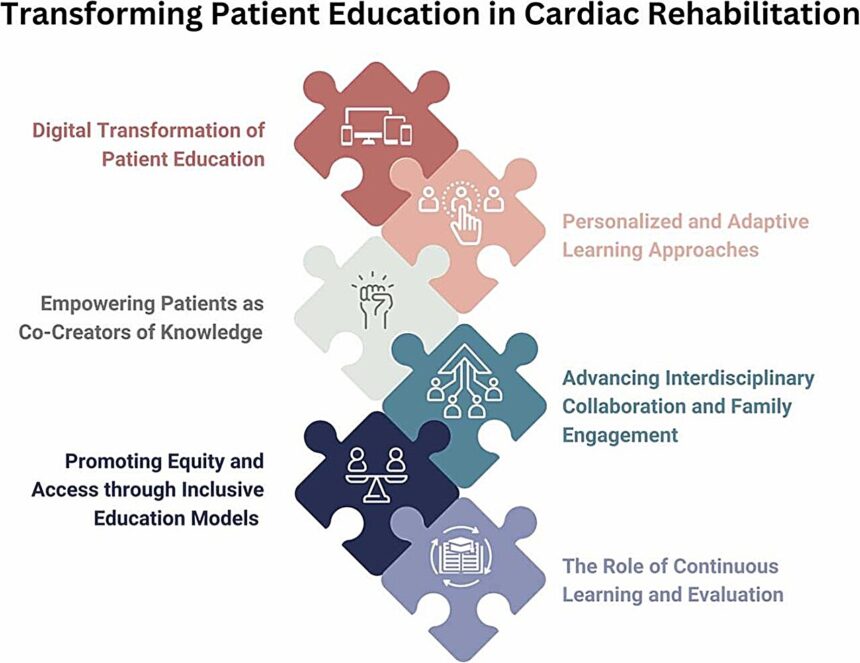Patient education plays a crucial role in empowering patients with knowledge to transform their lives, especially in the context of cardiovascular disease (CVD) rehabilitation. Dr. Gabriela Ghisi, an Affiliate Scientist at the KITE Research Institute, University Health Network in Canada, has been at the forefront of this field for the past 20 years. Her recent discussion paper published in Patient Education and Counseling proposes a new vision for patient education in cardiac rehabilitation, emphasizing inclusivity and empowerment.
The traditional model of patient education in cardiac rehabilitation often involves didactic sessions where patients passively receive information. Dr. Ghisi advocates for a more participatory approach, where patients are actively involved in designing, delivering, and evaluating educational materials. This “participatory education” model ensures that content is relevant, respectful, and usable, as it is shaped by individuals with lived experience of CVD.
Furthermore, Dr. Ghisi emphasizes the importance of interdisciplinary collaboration in patient education. Nurses, physical therapists, dietitians, psychologists, and peer mentors should work together with patients to create personalized learning experiences. This approach recognizes that patients do not experience their health in isolation and tailors education to individual needs and preferences.
Personalization and adaptive learning are also key components of Dr. Ghisi’s vision for patient education in cardiac rehabilitation. By tailoring content and delivery to each patient’s readiness, literacy level, cultural context, and emotional state, education becomes more effective and engaging. Digital tools can support this personalized approach by offering adaptive learning platforms that respond to individual progress.
Moreover, Dr. Ghisi advocates for leveraging technology to enhance the delivery of patient education. Digital tools such as videos, apps, online platforms, and hybrid models can make education more accessible and engaging, especially in regions where in-person services are limited. This digital transformation can help bridge the gap in access to cardiac rehabilitation programs.
Equity and access are central themes in Dr. Ghisi’s vision for patient education. She stresses the importance of culturally adapted materials, outreach to underserved communities, and addressing social determinants that impact patients’ ability to engage with health information. By ensuring that education is inclusive and accessible, CR programs can promote equitable and sustainable cardiovascular health promotion.
In conclusion, Dr. Gabriela Ghisi’s transformative approach to patient education in cardiac rehabilitation highlights the need for a paradigm shift towards dynamic, collaborative, and patient-centered education. By empowering patients as co-creators of knowledge, embracing interdisciplinary collaboration, personalizing education, leveraging technology, and prioritizing equity and access, CR programs can play a pivotal role in promoting long-term health and empowerment.








